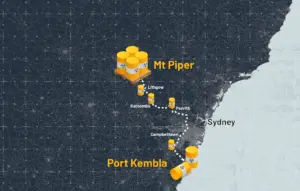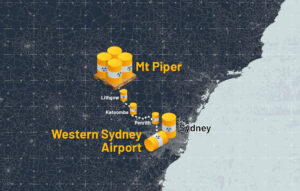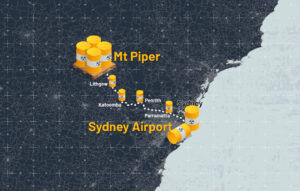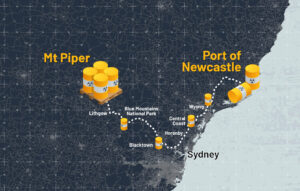
Nuclear will cost $600bn
Nuclear is the most expensive type of power to build. ($600bn figure is from The Smart Energy Council)
It will supply only 4% of the grid
And that’s a rounded-up figure. It’s actually just 3.7%. Again, according to the Smart Energy Council.


It won’t make your power bills cheaper
Nuclear is expensive. Eight times more expensive than electricity produced by renewables, for example. Which means the average Australian household would pay up to $1,000 per year more (source: CSIRO).
It will take 20 years or more to be operational
We’re already at 40% renewables – so why start building nuclear power stations that won’t be operational until 2055?

SIGN UP for more information on our campaign
Why would we spend $600b on nuclear power stations when they would supply less than 4% of the grid? Those figures are from the Smart Energy Council, by the way.
Meanwhile, the CSIRO says nuclear power is much more expensive than renewables, so why would Dutton’s plan help with power bills?
And since battery storage is outstripping all expectations, why is Dutton still making the reliability of renewables such an issue? In fact we’re already at 40% renewables – so why start building nuclear power stations that would take 30 years to be operational?
Last question. And it’s a big one. Nuclear power means nuclear waste… why won’t Dutton say where it would go?
THE FACTS ON NUCLEAR
FACTS ON NUCLEAR:
No. The energy produced by nuclear reactors is expensive. Eight times more expensive than electricity produced by renewables, for example. Which means the average Australian household would pay $590 per year more on their power bill.
Yes. Nuclear is the most expensive type of power to build and run. The Smart Energy Council costed Peter Dutton’s nuclear plan at $600bn, yet it would supply under 4% of the grid
Nuclear reactors take an average of 10 years to be built.
In countries like Australia – which doesn’t have a workforce trained to build nuclear power stations and would need new legislation to approve them – the timeline blows out to 13 years and can be as long as 30 years.
By comparison, Australian solar and onshore wind projects take nearly a quarter of the time it takes to build nuclear energy.
Australia is one of the countries with the highest solar radiation on earth, and our battery storage capacity is now grown to supply hundreds of thousands of homes, and is still growing.
Not right now. Australia currently does not have a national radioactive waste facility. And to date, no Australian community has ever agreed to store radioactive waste.
Nuclear waste can remain radioactive and hazardous to human health for tens of thousands of years.
Not nearly as many as renewables. Recent estimates show that by 2050 there will be 2.2 million jobs in renewable energy, across a range of blue and white collar roles.
By comparison, a typical nuclear plant will create approximately 3,500 jobs in construction and only 400 ongoing positions.
No. Leaving aside disasters like Chernobyl, Fukushima and Three Mile Island, there are other risks and complications associated with nuclear energy.
For workers, there is an increased risk of cancer. And for the public, there is the danger of poorly stored nuclear waste, which can lead to radioactive material leaking into the water table.
No. Like fossil fuels, nuclear energy is reliant on a finite mineral resource, usually uranium.
Solar and wind, on the other hand, exist in unlimited supply. While Australia does have significant reserves of uranium, it is by no means unlimited. Just like coal and gas, once it’s gone, it’s gone.
The World Nuclear Association says that a 1000 MW reactor uses approximately 27 tonnes of uranium per year – which they say can be transported in 4 – 5 trucks.
The large-scale nuclear reactors proposed by Dutton are all planned to be 2000MW reactors – so double the number of trucks transporting the uranium.
Why would Australians want truckloads of radioactive material driving through their backyards?
Here are examples of a truck route transporting uranium through NSW to reach Dutton’s proposed Mt Piper nuclear reactor:




